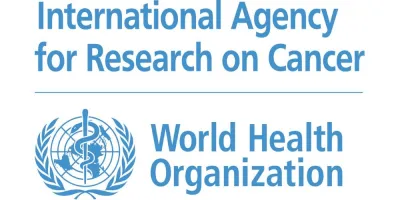
International Agency for Research on Cancer (IARC)
In collaboration with
Information
IARC’s Mission: Cancer research for cancer prevention The International Agency for Research on Cancer (IARC) is the specialized cancer agency of the World Health Organization. The objective of the IARC is to promote international collaboration in cancer research. The Agency is inter-disciplinary, bringing together skills in epidemiology, laboratory sciences and biostatistics to identify the causes of cancer so that preventive measures may be adopted and the burden of disease and associated suffering reduced. A significant feature of the IARC is its expertise in coordinating research across countries and organizations; its independent role as an international organization facilitates this activity. The Agency has a particular interest in conducting research in low and middle-income countries through partnerships and collaborations with researchers in these regions. Causes and prevention of cancer Emphasis is placed on elucidating the role of environmental and lifestyle risk factors and studying their interplay with genetic background in population-based studies and appropriate experimental models. This emphasis reflects the understanding that most cancers are, directly or indirectly, linked to environmental factors and thus are preventable. The IARC Monographs Programme is a core element of the Agency’s portfolio of activities, with international expert working groups evaluating the evidence of the carcinogenicity of specific exposures. The Agency is also committed to studying approaches for the early detection of cancer and in evaluating prevention strategies. A global reference for cancer information The IARC has an important role in describing the burden of cancer worldwide, through co-operation with and assistance to cancer registries and in monitoring geographical variations and trends over time. Key publications include the Cancer Incidence in Five Continents series and GLOBOCAN. The classification of human tumours as reported in the WHO “Blue Book” series is an additional resource of value to cancer researchers and clinicians worldwide. In all cases the Agency strives to make its findings available to the widest possible audience. Global cancer biobank One of the products of IARC’s coordinating role is an increasingly important biobank with currently approximately 6 million samples from 600 000 subjects in total. This resource permits the application of innovative laboratory-based methodologies to study the causes, early detection and prevention of cancer through collaborative studies with many international partners. Education and training A core part of the Agency’s mission is education and training of cancer researchers worldwide. This is achieved through fellowships, courses and publications. Priority is given to training researchers from low and middle-income countries in the areas of cancer epidemiology and cancer registration. Producing evidence-based science for global cancer control policies The close working relationship between IARC and its parent organization, WHO, allows the research findings of the Agency to be translated effectively into timely policies for cancer control. This is manifest, for example, in co-operation in terms of reduction in tobacco use, implementation of vaccination against viruses associated with cancer causation, or in assessing the effectiveness of intervention strategies. IARC is not involved directly in implementation of control measures, nor does it conduct research on treatment or care of cancer patients.